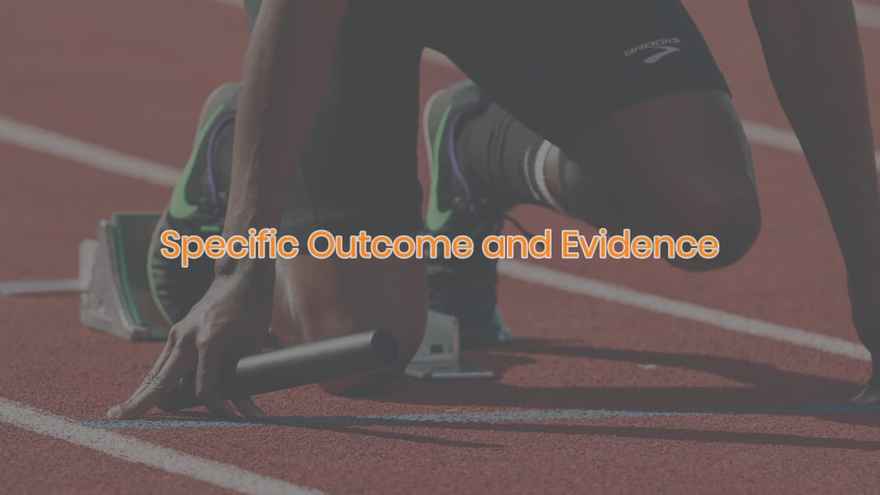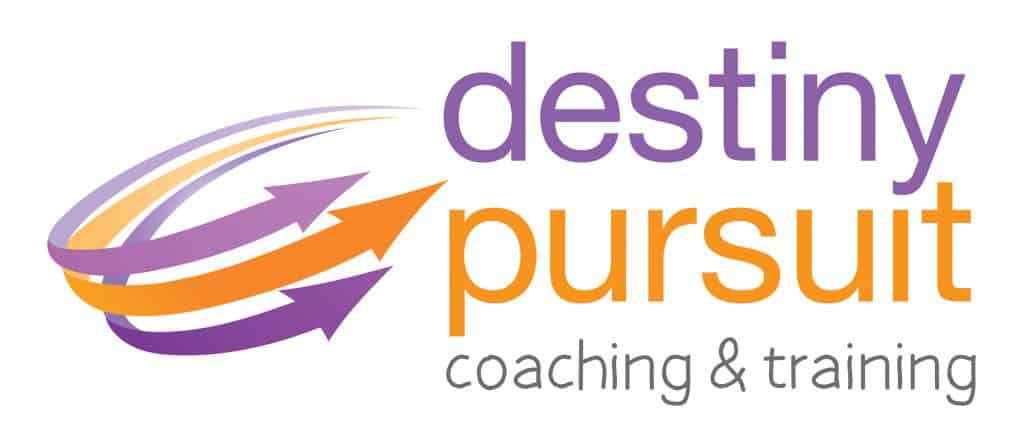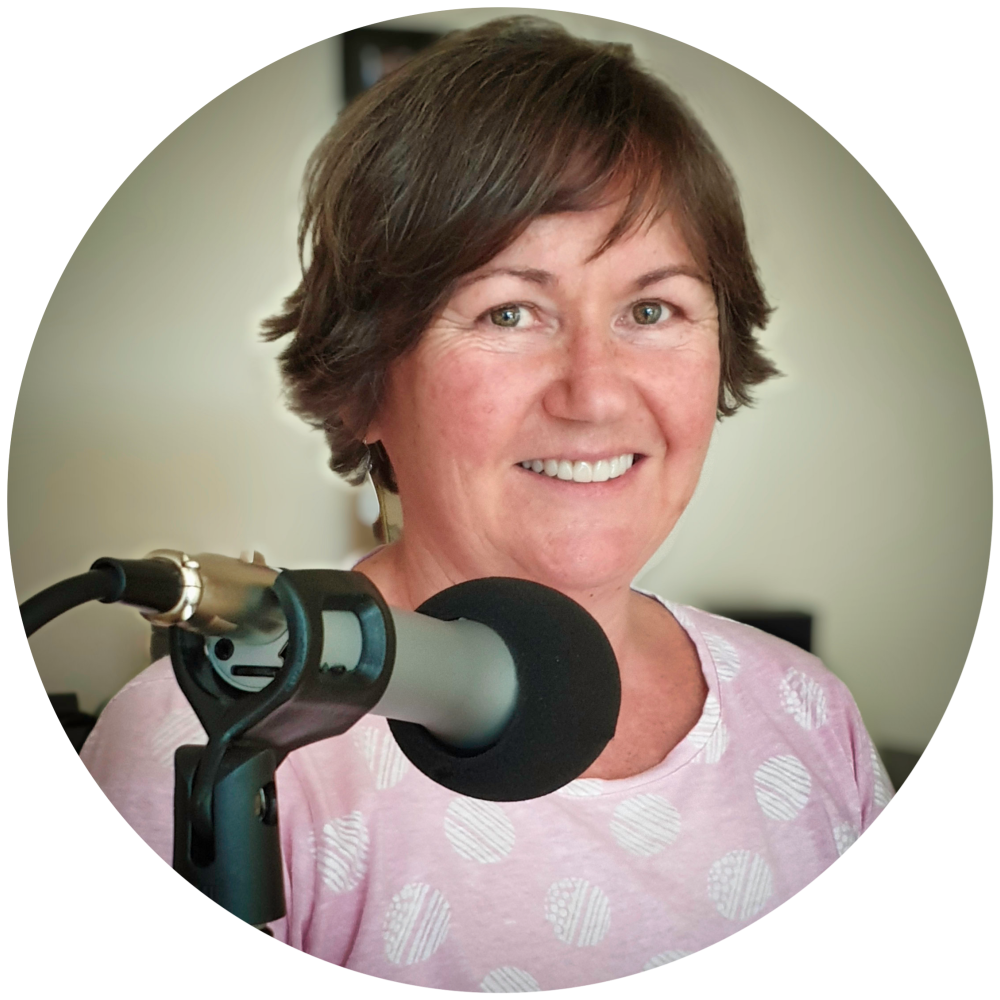Specific Outcome and Evidence - NLP Matters, Episode #018

In our last episode, we learned the first two Keys to an Achievable Outcome - stating our goal in the positive and specifying the present situation. But how do you actually know when you’ve actually achieved your goal?
You may find it hard to believe, but quite often, people don’t recognize when they have achieved their goal. We may have something we are aiming to do or something you want to achieve, and we become so busy doing it that we get so caught up in the process. And, when we have actually achieved the goal, it is then, what’s next?
Our attention and focus have shifted beyond the goal, which means that we don’t get to celebrate our success. In fact, sometimes, we get trapped in a cycle of feeling as though we will never achieve anything, and you wouldn’t want that, would you?
In this episode, we’re going to explore in detail the third and fourth keys to an achievable outcome - specifying the outcome in detail and specifying your evidence procedure, that are both really important to ensure that we get clarity around our goals and around our measurement of success.
Listen to the podcast to learn more.
Listen to the Podcast
Here are some key takeaways from this episode:
- The Keys to an Achievable Outcome is a powerful NLP technique that unlocks the foundation for ensuring that our desired outcomes and goals are structured and designed in a way that maximises our success.
- NLP is based on modeling. The Keys to an Achievable Outcome have been modeled from people who were very good at achieving success.
- The Keys to an Achievable Outcome is all about being very specific about our desired outcome - what is it that we are really going for?
- The Reticular Activating System (RAS) of the brain helps us to focus and direct our concentration onto the important things that will get us closer to our goal.
- Our RAS sorts out millions of ideas and billions of pieces of information that our brain receives. It is responsible for filtering, modifying or deleting, distorting, and generalising the information, so that we don’t get caught up in a backlog. It works like a camera in the brain. You choose what you want to take a picture of and focus on that to the exclusion of everything else, and then take the picture.
- Choosing a goal is like programming your RAS, and like all good programs, the clearer it is, the more efficient and effective the RAS will be when searching for your goal.
Specifying the Outcome and Evidence Procedure
- Specify your goal in a way that is very, very clear. Things that you want to have or are hoping to do are not really very specific goals.
- A feeling is not a goal. Feeling nice, good, and happy are emotional states. You can change your emotional state at any moment, merely by changing what you are thinking about.
- A goal always requires some steps to achieve it. If there are no steps required, then, it is not a goal.
- Define your goals using the SMART model: Specific, Measurable, Achievable, Realistic, and Timed and Towards. Using the SMART model means that you can deliver on both the third and fourth keys to an achievable outcome because it allows you to be very specific about your goal. It also helps you identify the measures for how you will know when you have achieved it.
- Think about a goal that you have - what will you see, hear, and feel, when you’ve finally achieved the goal. And, as you move towards an achieved goal, think about the measures that you need to have in place to keep you on track.
- The third and fourth keys to an achievable outcome are both very important for ensuring that we have great clarity around our goals and around our measures for success.
- To establish the evidence of your success, ask yourself - how much, how many, how will I know when it’s accomplished?
- Our unconscious mind loves detail. The more detail you can put in there with imagery and symbols, the more likely you are able to have your unconscious and conscious mind both working in alignment to help you achieve your goal.
Now that we know the first four keys to an achievable outcome, sit down with a goal and just play with the keys to an achievable outcome. Give it go!
In the next episode, we’ll explore the next two steps of the Keys to an Achievable Outcome - checking that the goal is congruently desired, and ensuring that the goal is self-initiated and self-maintained.

Listen to the Podcast
Joanne Clark
Joanne Clark is an Internationally accredited Master Trainer of NLP who has been delivering NLP training since 2011. Being on her feet in front of training rooms is where Jo loves to be and her passion for inclusive and immersive training that delivers outstanding learning outcomes is apparent to everyone in her training rooms. On average Jo delivers 140 days of training per year in addition to online webinars, guest speaker events and group coaching.
“NLP is at the core of all my training and coaching, it is at the core of who I am, how I interact and connect with people. I am absolutely passionate about spreading the NLP tools across the planet as I endeavour to support Robert Dilts’s vision of Creating a world to which people want to belong.” Joanne Clark
Certified Master Trainer of NLP; Master Practitioner NLP, Hypnotherapy & Matrix Therapies; Performance Coach; Cert IV Coaching; Advanced Practitioner in Coaching; Cert IV in Business; BA(Hons); Majors in Sociology and Psychology; Parent Education Leadership Training (PELT) Certificate; Mother of four children; Private Pilot (PPL); Diploma in Life Coaching


0 comments
Leave a comment
Please log in or register to post a comment